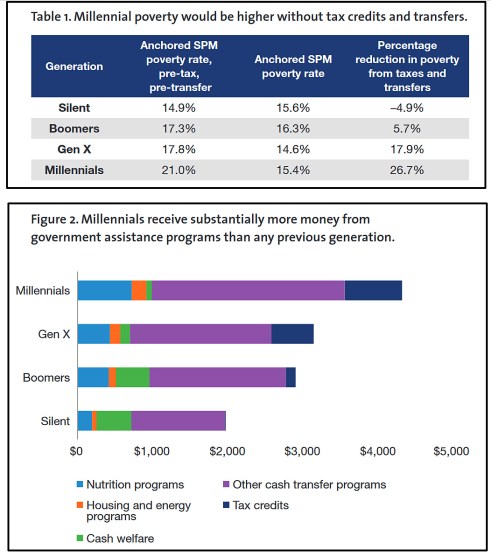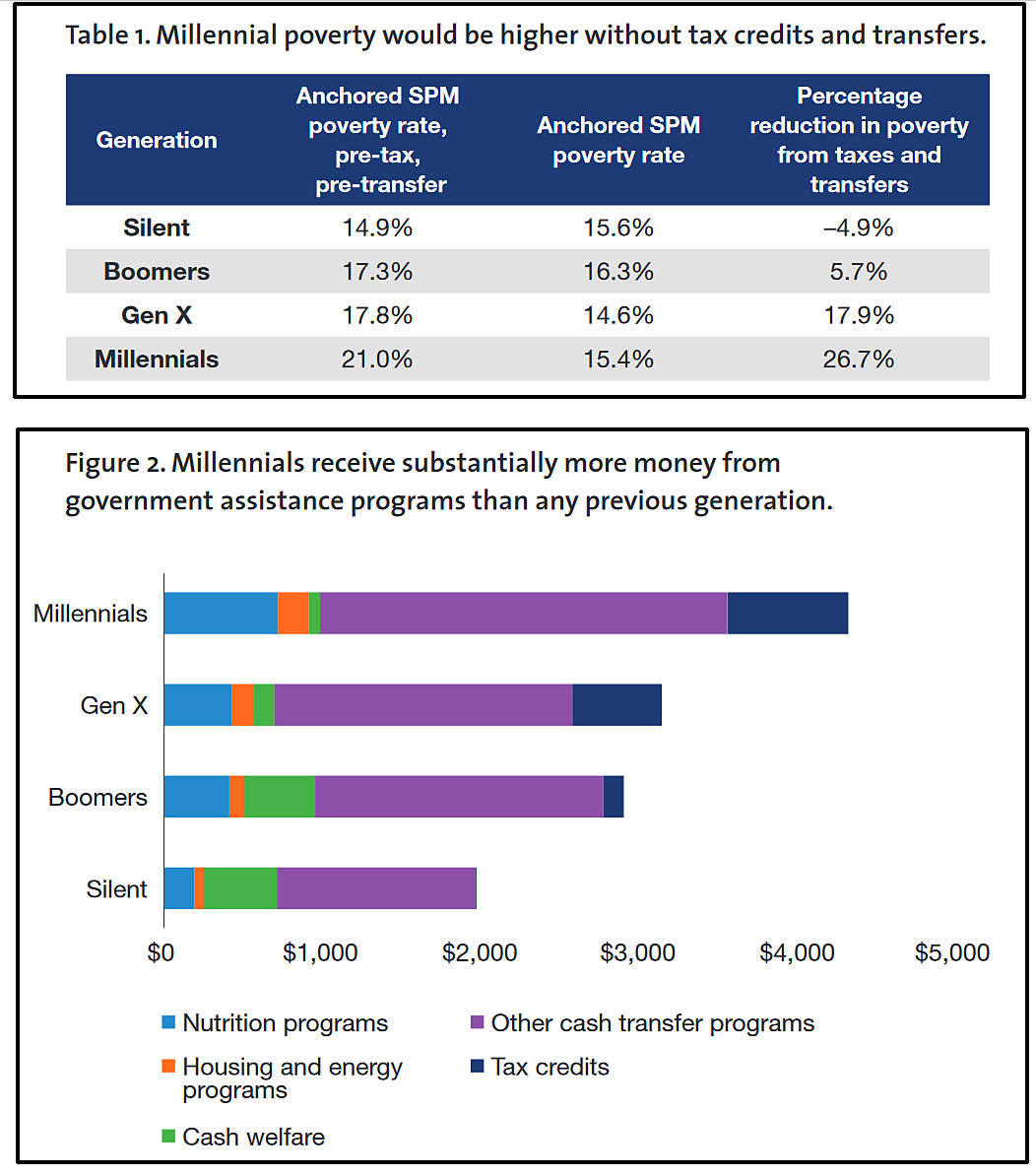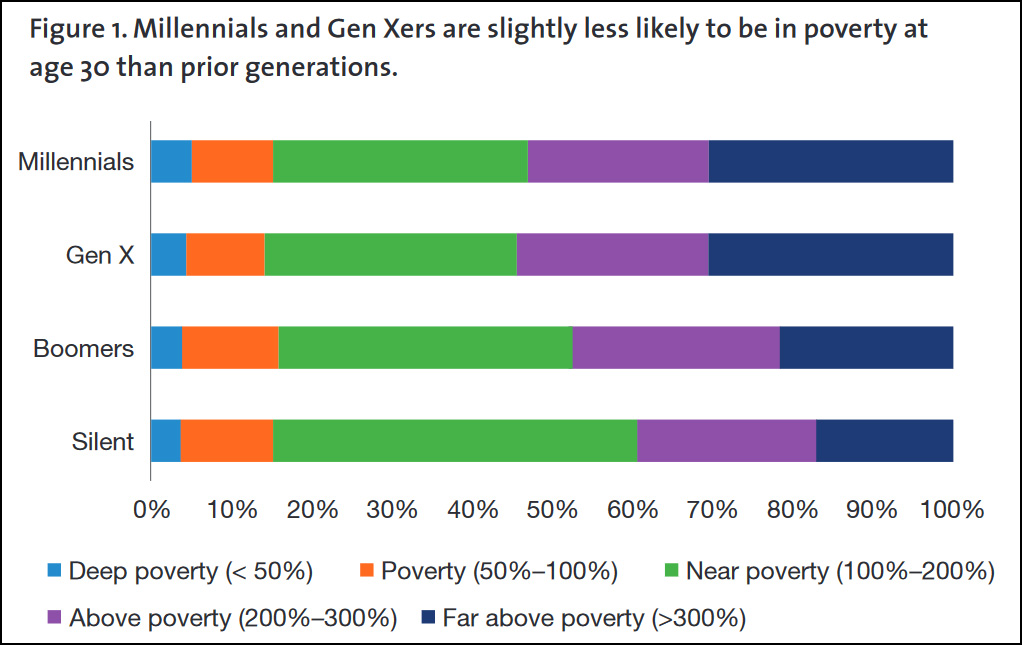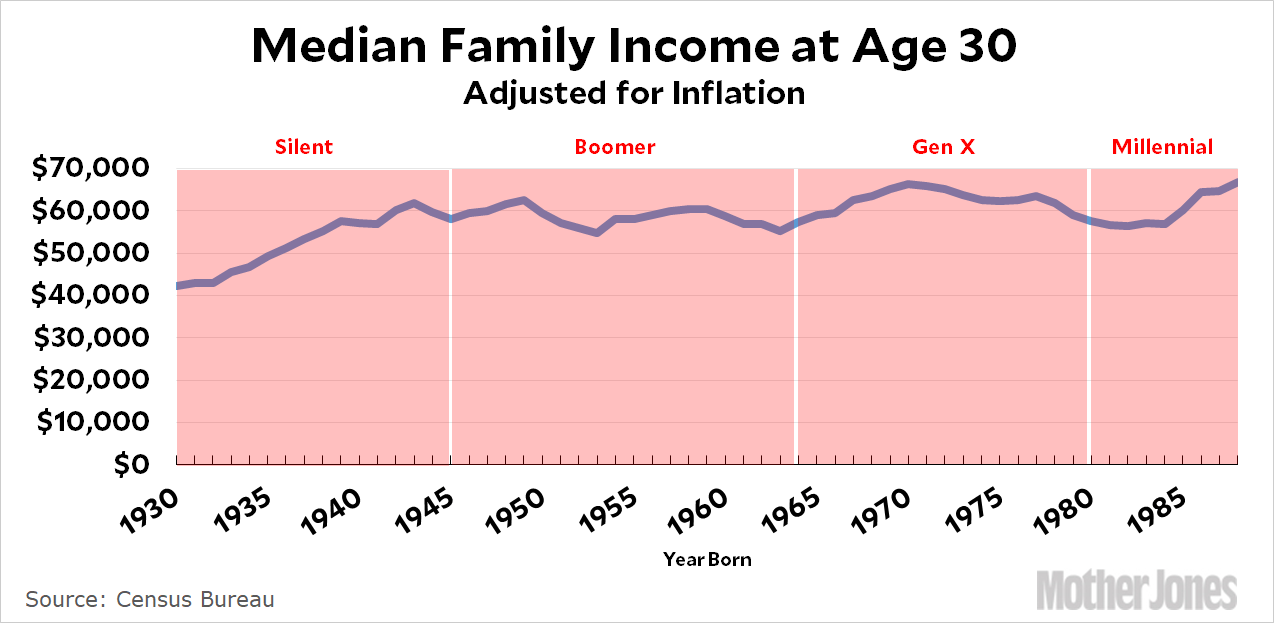
Is this true?
Millennials aren’t just the first generation set to do worse than our parents and our grandparents. If not for the (badly tattered) social safety net, we would be the most impoverished young adults since the Great Depression.
— Jill Filipovic (@JillFilipovic) August 11, 2020
Pretty much, yes. This is for 30-year olds:

This shouldn’t be surprising. Many Millennials faced the full force of the Great Recession in their early 30s, and that had a big effect on their income. At the same time, the system worked the way it was intended: they also received more government assistance than other generations during this time. When you put this together, their poverty rate was about the same as Gen X and lower than either boomers or boomer parents at the same age:

My only real objection to Filipovic’s tweet is her description of the social safety net as “badly tattered.” In fact, it’s grown steadily since the 60s and is quite robust these days. Republicans seem to spend their entire careers fighting to tear it apart, but the truth is that they’ve only nibbled around the edges. We may still not be as generous to the poor as social democratic Europe—and our anti-poverty programs are egregiously splintered and inefficient—but spending is pretty high and it’s reponsible for keeping poverty at lower real levels than it was for older generations.
Generally speaking, I think it’s important to keep two things in mind at the same time. It’s true that Millennials face unusual pressures: the Great Recession, student debt, and high housing costs foremost among them. At the same time, Millennial income at age 30 has recovered from the Great Recession and is now higher than it was for boomers and Xers.

(This data precedes the COVID-19 pandemic. It will be years before we know how that affected different generations.)
Bottom line: Millennials, on net, are not as well off as previous generations: they have slightly higher incomes but noticeably higher expenses. At the same time, the difference with previous generations is smallish and they really aren’t massively impoverished. The real scandal here isn’t so much intergenerational as inter-class: Why is it that income has barely budged for everyone in the past three generations?
Answer: Because the rich have gotten nearly all the gains. That’s the common enemy, not the ordinary folks who are a decade older or younger than you.















